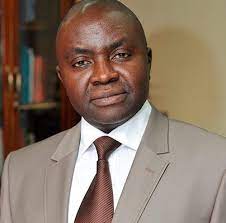The Centre for the Promotion of Private Enterprise (CPPE) has flawed the provisions of the Finance Bill 2022 now undergoing review in terms of the proposed hike in tax rates in almost all sectors of the economy and advised the fiscal authorities to have a re-think on the provisions.
The Centre strongly canvassed for the downward review of the tax rates in a Note titled ‘Tweaking the 2023 Finance Bill and Options for Unlocking Revenues in 2023’ signed by its Founder/Chief Executive Officer, Dr. Muda Yusuf, at the weekend.
The leading organized private sector (OPS) advocacy groups noted that though the plans by the fiscal authorities to boost non-oil sector revenues was desirable based on the huge yearly budget deficits but pointed out that over-burdening the business owners with huge taxes would be counterproductive and hurt the economy.
While commending President Muhammadu Buhari for withholding assent to the Bill, the CPPE’s CEO maintained that the provisions of the draft Bill on the imposition of excise duty on all services were too broad, inexact and wide ranging and makes the business community very vulnerable.
Yusuf, who is the immediate past Director- General of the Lagos Chamber of Commerce and Industry (LCCI), further pointed out there was no jurisdiction globally where all services were liable to excise duty and excise duties as they are typically specific and selective, and often imposed to dis-incentivize consumption or production of particular product groups.
The seasoned economist expressed concern that the current open-ended provision was inimical to investment as it makes the imposition of excise duties arbitrary, indiscriminate and unpredictable, advising that the Bill should contain specifics of services to be taxed for better stakeholder engagement.
Further noting that practically all services are currently liable to Value Added Tax (VAT) and that the services sector is currently the largest contributor to government tax revenue and accounts for 54% to GDP, Yusuf expressed the group’s concern that companies in the service sector were already paying huge taxes in the form of company tax which is currently at 30% , tertiary education tax at 2.5%, NITDA levy at 1%, NASENI levy at 0.25%, Police Trust Fund Levy at 0.005% and withholding tax on profit distribution at 10%.
He stressed that revenue drive should rather focus on efficiency, effectiveness and equity as major policy objectives of taxation.
Commenting on the imposition of 0.5% import levy on goods being imported outside Africa provided for in the draft bill, Yusuf said that the implementation of the provision would be an additional burden on both businesses and the citizens as it will escalate operating expenses, production costs and fuel inflation in the economy.
This is even as he flawed the provision of the Bill which seeks to raise company income tax (CIT) on gas flaring companies, warning that this is not a good time to impose a punitive tax on gas companies.
Yusuf clarified: “Besides, the 50% tax introduced is not consistent with the essence of the recently enacted Petroleum Industry Act [PIA]. The government should explore other gas flaring mitigation measures, which must be proportional to the volume of gas flared.”
In addition, he picked holes in the proposed increase Tertiary Education Tax from 2.5% to 3% but lauded the government plans to end fuel subsidy regime this year, in view of the huge accruable revenue benefits to the three tiers of government if appropriate reforms are implemented.
The CPPE boss listed another major subsidy regime from which huge revenues can be unlocked in the short term as the foreign exchange policy regime, adding that to optimize the FX revenue potential in the immediate term.
He advocated: “The exchange rate assumption in the budget should be immediately reviewed to reflect exchange rate realities and boost revenue to the federation account.”






